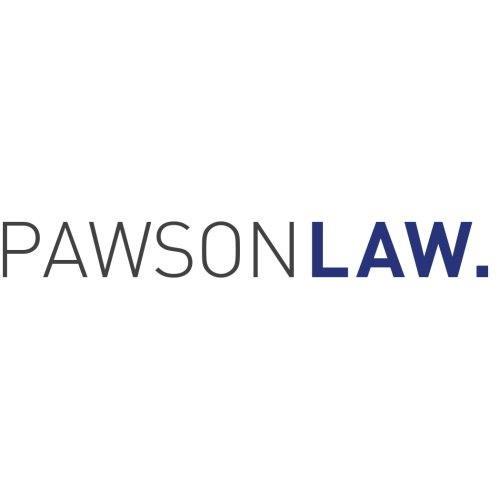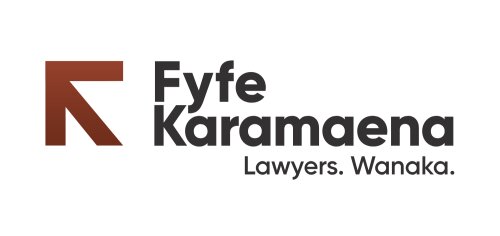Best Hiring & Firing Lawyers in New Zealand
Share your needs with us, get contacted by law firms.
Free. Takes 2 min.
Or refine your search by selecting a city:
List of the best lawyers in New Zealand
About Hiring & Firing Law in New Zealand
Hiring and firing laws in New Zealand are designed to protect both employers and employees, ensuring fair and equitable treatment in the workplace. The primary legislative framework governing employment is the Employment Relations Act 2000, which emphasizes good faith in all dealings between employers and employees. The Act outlines the obligations and rights during hiring, such as clear communication of employment terms, and provides procedures for lawful termination, ensuring that dismissals are handled fairly and reasonably.
Why You May Need a Lawyer
There are numerous situations where individuals may seek legal advice related to hiring and firing. These include disputes about employment contracts, breaches of employment agreements, unfair dismissal claims, and redundancy situations. Employers may also require assistance to navigate complex employment laws, draft legally compliant contracts, or handle employee grievances effectively. In all these scenarios, a lawyer can provide crucial advice to prevent potential legal issues or resolve conflicts.
Local Laws Overview
New Zealand's employment laws focus on ensuring fair treatment in the workplace. Key aspects include:
- Employment Contracts: Employment agreements must be provided in writing and outline the key terms and conditions of the job.
- Unfair Dismissal: Employers need a valid reason for dismissal and must follow a fair process, including providing the employee with an opportunity to respond to any concerns.
- Redundancy: Must be genuine and the process transparent. Consultation with affected employees is required.
- Minimum Rights: Employees have a right to minimum wage, set working hours, rest breaks, and leave entitlements.
- Human Rights: Hiring and firing processes must comply with the Human Rights Act 1993, prohibiting discrimination.
Frequently Asked Questions
What is an employment agreement, and why is it important?
An employment agreement is a written contract between an employer and employee outlining the terms and conditions of employment. It is crucial because it sets clear expectations and helps prevent disputes.
Can an employer dismiss an employee at any time?
No, employment laws in New Zealand require employers to have a valid reason for dismissal and to follow a fair, proper process.
What constitutes unfair dismissal?
Unfair dismissal happens when an employee is dismissed without a valid reason or a fair process. It can result in legal action against the employer.
What are the rights of employees during a redundancy process?
Employers must prove that redundancy is genuine and conduct a fair process, including consultation with affected employees about potential alternatives.
How does the Human Rights Act influence hiring practices?
The Human Rights Act prohibits discrimination based on factors such as race, gender, religion, and disability. Employers must ensure hiring practices are free of discrimination.
Are trial periods legal in New Zealand?
Yes, trial periods are legal but must be clearly stated in the employment agreement and cannot exceed 90 days. They only apply to new employees.
What legal steps can be taken if an employment agreement is breached?
When a breach occurs, the affected party can attempt to resolve the issue through mediation, facilitated by the Ministry of Business, Innovation and Employment, or take the matter to the Employment Relations Authority.
Can an employee raise a personal grievance after being dismissed?
Yes, an employee can file a personal grievance if they believe their dismissal was unjustified. They typically have 90 days from the date of dismissal to do so.
How is holiday pay calculated in New Zealand?
Holiday pay is usually based on the greater of the employee's average weekly earnings calculated over the previous 12 months or their ordinary weekly pay at the time of taking leave.
What should an employer do if an employment dispute arises?
Employers should attempt to resolve disputes internally first and may engage in mediation if needed. Legal advice may be sought to ensure rights and obligations are appropriately managed.
Additional Resources
For further assistance, several resources can be helpful:
- Ministry of Business, Innovation and Employment (MBIE): Offers guidance on employment laws and handles mediations.
- Employment Relations Authority: Provides resolution for disputes outside of traditional court settings.
- Citizen’s Advice Bureau: Offers free advice on employment matters.
- Human Rights Commission: Protects against discrimination in the workplace.
Next Steps
If you need legal assistance in hiring and firing matters, consider taking the following steps:
- Document the Issue: Keep records of all relevant communications and documents concerning your employment concerns.
- Research: Familiarize yourself with your rights and obligations under New Zealand employment laws.
- Consult a Lawyer: Seek legal advice from an employment lawyer well-versed in New Zealand’s specific regulations.
- Consider Mediation: Engage with MBIE or other mediation services to resolve disputes amicably if possible.
- Legal Action: If necessary, pursue action via the Employment Relations Authority for a binding resolution.
Lawzana helps you find the best lawyers and law firms in New Zealand through a curated and pre-screened list of qualified legal professionals. Our platform offers rankings and detailed profiles of attorneys and law firms, allowing you to compare based on practice areas, including Hiring & Firing, experience, and client feedback.
Each profile includes a description of the firm's areas of practice, client reviews, team members and partners, year of establishment, spoken languages, office locations, contact information, social media presence, and any published articles or resources. Most firms on our platform speak English and are experienced in both local and international legal matters.
Get a quote from top-rated law firms in New Zealand — quickly, securely, and without unnecessary hassle.
Disclaimer:
The information provided on this page is for general informational purposes only and does not constitute legal advice. While we strive to ensure the accuracy and relevance of the content, legal information may change over time, and interpretations of the law can vary. You should always consult with a qualified legal professional for advice specific to your situation.
We disclaim all liability for actions taken or not taken based on the content of this page. If you believe any information is incorrect or outdated, please contact us, and we will review and update it where appropriate.
Browse hiring & firing law firms by city in New Zealand
Refine your search by selecting a city.

















